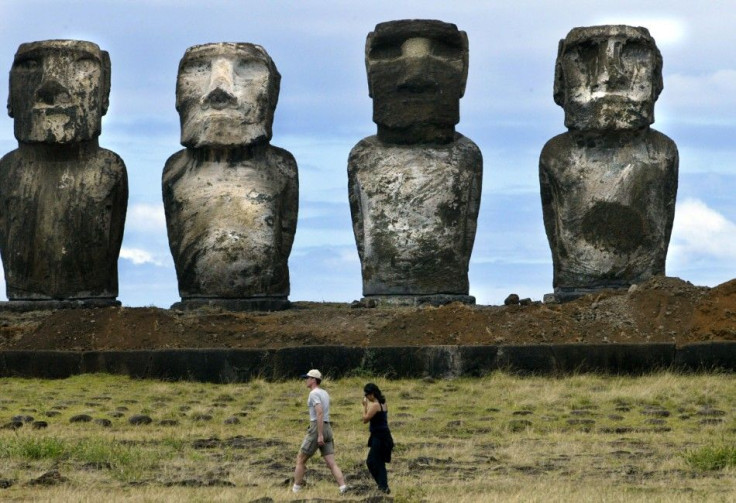Can Easter Island Bacteria Rapamycin Cure Alzheimer's Disease?

The iconic Easter Island statues may not be the only mysteries on Rapa Nui - bacteria found in soil on the Polynesian territory may hold the key to curing Alzheimer's disease, according to researchers at the University of Texas Health Science Center at San Antonio.
The researchers gave rapamycin, a bacterial product found in the soil on Easter Island named after the Polynesian name (Rapa Nui) of the territory, to mice throughout their lifespan and found that rapamycin enhanced learning and memory in young mice and older mice improved in those areas.
We made the young ones learn, and remember what they learned, better than what is normal, said Veronica Galvan, an assistant professor of physiology at the Barshop Institute for Longevity and Aging Studies, which is part of the UT Health Science Center. Among the older mice, the ones fed with a diet including rapamycin actually showed an improvement, negating the normal decline that you see in these functions with age.
The Easter Island bacteria also caused the mice's anxiety to drop and lowered depressive-like behavior, Galvan said. This effect is noteworthy because anxiety and depression are factors that impair human cognitive performance.
Jonathan Halloran, lead author of the Easter Island mice study, said the researchers observed anxiety and depression in the mice by building an elevated maze with tunnels that led to a catwalk, which created an anxious moment for mice because the rodents prefer tunnels with walls.
All of a sudden the mice are in open space, Halloran said. It's pretty far from the floor for their size, sort of like if a person is hiking and suddenly the trail gets steep. It's pretty far down and not so comfortable.
The researchers found that the mice that were given the Easter Island bacteria were more likely to explore the catwalk.
We observed that the mice fed with a diet containing rapamycin spent significantly more time out in the open arms of the catwalk than the animals fed with a regular diet, Halloran said.
The researchers also developed test to measure depression in the mice and found that the Easter Island bacteria acts as an anti-depressant.
The test involved dangling mice by their tails - an action they despise. Depressed mice won't struggle as long while they're being tugged on their tails.
We found rapamycin acts like an antidepressant - it increases the time the mice are trying to get out of the situation, said Galvan. They don't give up; they struggle more.
Rapamycin had the same anti-depressant properties whether they were 4 months old (the equivalent of a college-aged human) to 12 months (middle age) and 25 months (advanced age.)
The researchers' findings were published Friday in the journal Neuroscience.
© Copyright IBTimes 2024. All rights reserved.






















